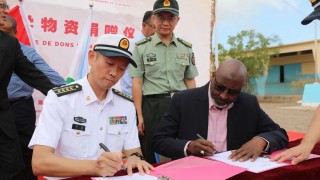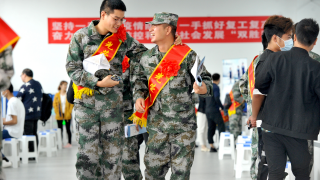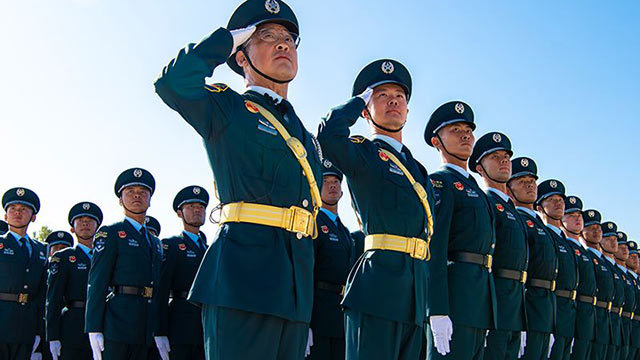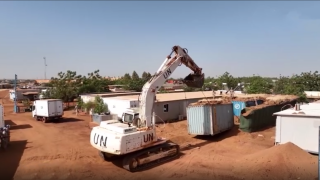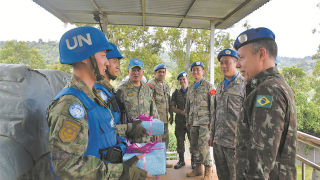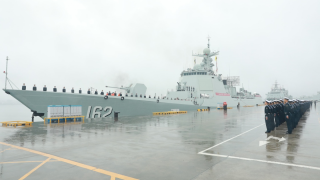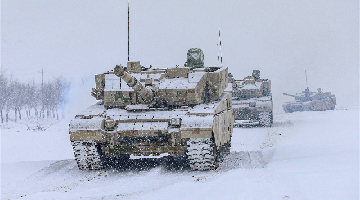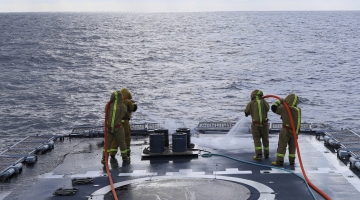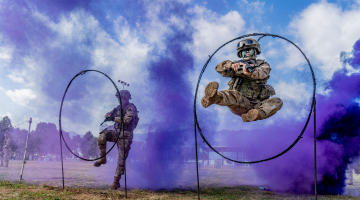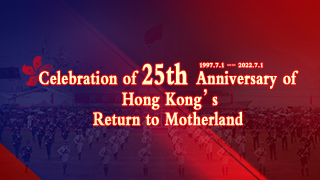By Zhong Feiteng
In his recent visit to the ROK and Japan, NATO Secretary General Jens Stoltenberg expressed his wish to intensify the military collaboration with the two countries, which indicated NATO's intention of expanding from a cross-Atlantic security alliance to a global security agency, a move that will take a toll on the peaceful development of the Asian-Pacific region.
After their meeting, Stoltenberg and Japanese Prime Minister Fumio Kishida released a joint statement to the effect that the security of the Euro-Atlantic and of the Indo-Pacific is closely connected, what happens in Europe today may happen in East Asia tomorrow, and that the current Japan-NATO cooperation has been elevated to new heights. The joint statement also mentioned China, smearing it as a challenger to the "rules-based international order" and expressing grave concerns over its "rapid strengthening of military capabilities and expansion of military activities".
Japan and NATO have taken a series of steps for deepened collaboration in recent years, including the joint exercise in the Mediterranean Sea, Japanese liaisons working at NATO’s allied maritime command based in Britain, and Japan joining NATO in sanctioning Russia and supporting Ukraine. NATO also welcomed Japan to participate in its council meeting and defense ministers' meeting regularly.
In the meantime, the cooperation between NATO and ROK has been moving fast. ROK President Yoon Suk-yeol made his debut at the NATO summit in Madrid, Spain last June and the country designated its Embassy to Belgium as the country's Mission to NATO in November. Although no joint statement was released after
Moreover, the NATO head specifically emphasized during his speech at ROK's Chey Institute for Advanced Studies and Japan's Keio University that the participation of the AP4 (ROK, Japan, Australia and New Zealand) in NATO's Madrid summit in June 2022 – the first time ever – marked a milestone in the organization’s intensified cooperation with its Indo-Pacific partners. China-related topics, which had never appeared in NATO's previous strategic documents before, held a key position in the agenda of the summit. When asked during the Q&A sessions after the speech whether he planned to institutionalize the cooperation with AP4, Stoltenberg said that it is already a reality in key areas of cooperation such as maritime affairs, cyberspace, technology and arms control. He also gave subtle yet insinuating answers to questions about nuclear deterrence that both Tokyo and Seoul are highly concerned about, saying that NATO's nuclear sharing arrangement is a way of extending America's nuclear deterrence system. Although NATO is aimed to build a world free from nuclear weapons, it is nevertheless a nuclear alliance whose members provide the carrier systems for America's nuclear weapons. Obviously, the organization is trying to coerce and coax certain Asian-Pacific countries into tightening their collaboration with it through nuclear baits.
But NATO is faced with three challenges in its efforts at Asian-Pacific expansion and globalization.
First, its management will become more complicated. Expanding a Europe-focused security architecture to the whole world entails a delicate touch in approaching the members’ not-so-aligned interests in the Asia pacific, which has been a chronic headache in America’s alliance management. A most pertinent case in point lately is that the US has formed the AUKUS security alliance with Australia and Britain in the Asia-Pacific in order to avert the objection from France, Germany and other NATO members.
Second, a China-targeted "New Cold War" is unpopular. Neither Asian countries nor most of NATO's European members want to join the "New Cold War" featuring bloc confrontation. When answering questions from ROK and Japanese audiences, Stoltenberg had to admit that all NATO members have close economic and trade ties with China and none of them goes for a "decoupling". It’s very hard for the organization to strike a balance between economy and security.
Third, tackling security challenges by drawing a values-based line is putting the cart before the horse. NATO currently has 30 members with a total population of one billion, and is in the habit of defining security threats based on such values as safeguarding "democracy" and "human rights". Yet the security challenge for the world's total 8 billion people and that for the 1 billion people of Western values are very different. An overhaul of the security concept is needed in human society if we are to properly handle security challenges in climate change, rich-poor disparity, medical and health care, employment, and other basic public services.
(The author is a researcher at the National Institute of International Strategy and director of the Regional Security Research Center, Chinese Academy of Social Sciences)
Editor's note: Originally published on huanqiu.com, this article is translated from Chinese into English and edited by the China Military Online. The information and opinions in this article do not necessarily reflect the views of eng.chinamil.com.cn.
